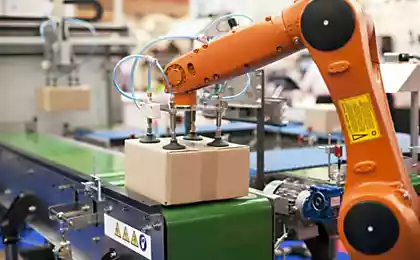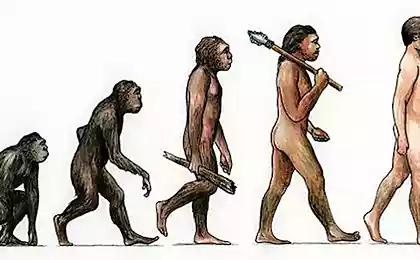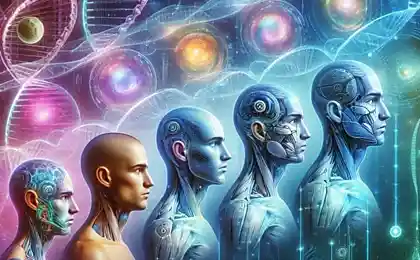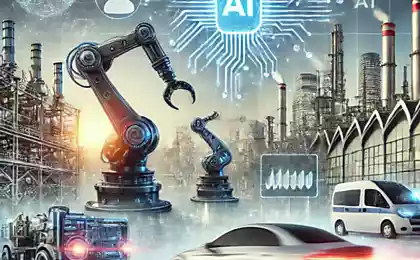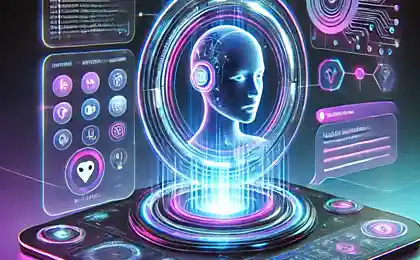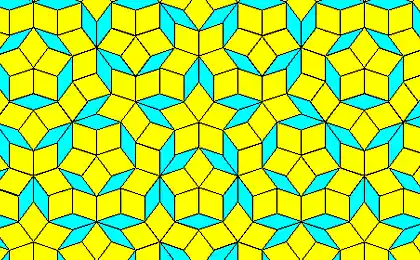247
How AI is Changing Humanity to Automation and Efficiency
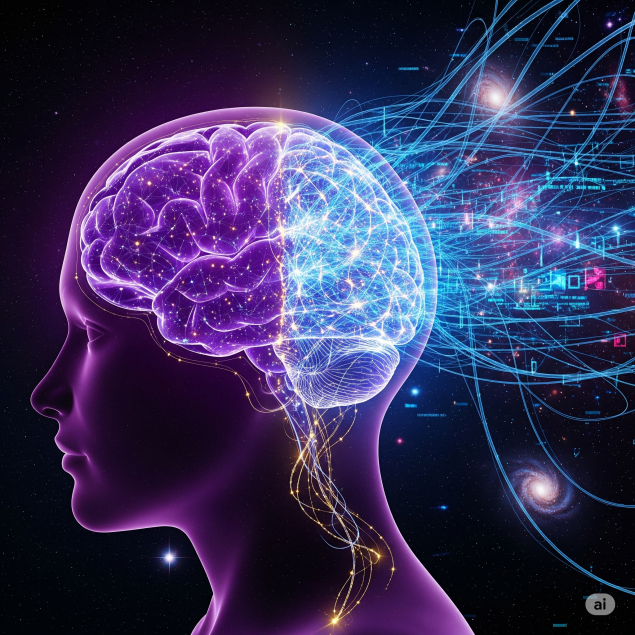
In an age where algorithms determine our preferences and robots master skills once available only to humans, the fate of our humanity is becoming more acute than ever. Artificial intelligence is not just a technological breakthrough; it is a powerful catalyst for change that rewrites the rules of the game in every aspect of our being. From automating routine tasks to making complex decisions in medicine and finance, AI permeates the very fabric of our civilization. But as we delegate more functions to machines, don’t we risk losing something fundamental – the very essence that makes us human? Can the pursuit of absolute efficiency lead to a voluntary exchange of places with our creations?
This article is not yet another doomsday prophecy or an anthem to a futuristic utopian society. We propose to reflect on the reality in which AI is already an integral part, and to try to understand how we not only survive in it, but also thrive while maintaining our uniqueness. We will look at how AI is transforming work, education, creativity, and even our emotional connections, and offer practical recommendations on how to adapt to this new reality.
The Efficiency Revolution: From Conveyor to Algorithm
Historically, humans have always sought automation. From the invention of the wheel to the steam engine, every round of scientific and technological progress has been aimed at increasing productivity and facilitating physical labor. However, the emergence of AI marks a qualitative leap. Now not only physical but also cognitive processes can be automated. Imagine: algorithms can analyze huge amounts of data in fractions of a second, identify hidden patterns, predict future events, and even generate ideas. Doctors are getting AI assistants capable of diagnosing diseases with unprecedented accuracy. Financers use AI to predict market fluctuations. Lawyers trust machines to analyze thousands of precedents.
This unprecedented efficiency has its advantages. The economy becomes more productive, freeing up human resources for more complex and creative tasks. We see the potential to address global challenges such as climate change, disease and poverty. However, there is a downside to this medal. As machines take on more tasks, what is left for humans? Will our pursuit of efficiency become an end in itself, replacing the pursuit of meaning, creativity, and human interaction?
Important Question: Where does the border go?
The problem is not that AI will take away our jobs, but how it will redefine the very value of human labor. If routine and repetitive tasks are fully automated, the focus will shift to areas where unique human qualities are needed: empathy, critical thinking, non-standard approach, empathy, creativity, and ethical reasoning. These qualities will be the currency of the future.
Humanity in the Age of Algorithms: Challenges and Opportunities
Transformation of Labor: From the Executor to the Creator and Curator
AI isn’t just taking away jobs; it’s rebuilding them. Many professions as we know them will disappear, but entirely new ones will emerge in their place. For example, there will be an increasing demand for AI educators, AI ethicists, user experience designers for AI systems, and of course those who create content and ideas that AI cannot generate on its own.
Lifehack for the career of the future: Focus on developing soft skills: critical thinking, creativity, emotional intelligence, teamwork, adaptability. Learn the basics of interacting with AI tools, but remember that your uniqueness as a human is your greatest asset. Invest in continuing education and retraining. Think about how you can use AI as a co-pilot rather than a replacement.
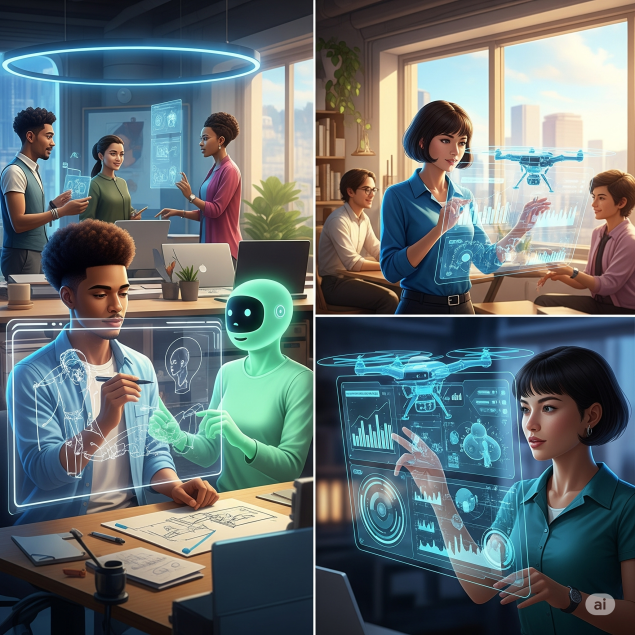
Education: From Memory to Understanding and Creativity
Traditional fact-based education systems are becoming obsolete in a world where information is available on demand. AI can become a powerful tool for personalized learning, adapting programs to the needs of each student. However, the main task of education now is to teach children and adults not only to process information, but also to think critically, solve non-trivial problems, cooperate and create new ones.
Recommendation: Schools and universities should shift their focus from “what to teach” to “how to learn” and “why to learn.” Develop in yourself and your children skills of research, project activities, problem-oriented learning. Encourage curiosity and willingness to experiment. Learn to distinguish reliable information from fakes created by AI.
Creativity and Emotions: The Pledge of Human Uniqueness
AI already knows how to write music, draw pictures and even compose poetry. For now, however, it imitates, compiles and reproduces. True creativity is the ability to create something completely new, dictated by inner experience, intuition, passion and even mistakes. Emotions are a fundamental part of human experience that is not yet available to machines.
Practical advice: Take time for activities that nourish your soul: art, music, writing, philosophy, sports, communication with nature. Develop your empathy, engage in social projects, and forge deep human connections. It is in these areas that we will be invincible for machines.
Example from Life: Empathy vs. Algorithm
Imagine a doctor who, using AI, made an accurate diagnosis. But will AI be able to comfort the patient, explain the complex diagnosis in clear words, support the family? Nope. This is the role of man, and this is where our irreplaceable value lies. In the case of creativity, AI can generate a million variations, but only humans can breathe a soul into a work that touches the hearts of others.
Voluntary Depersonalization: Myth or Inevitability?
The worrying prospect is that we may voluntarily give up our unique qualities in the pursuit of efficiency. If we are offered an AI assistant that makes our lives easier, our work faster, our decisions better, won’t we rely too much on it, forgetting about developing our own skills and intuition? We are already seeing how social media algorithms shape our views and recommendation systems dictate our leisure time.
Specific recommendation: Develop critical thinking. Always ask yourself, “Why does it work this way?” What are the alternatives? Can I do it myself/by myself? Don’t be afraid to disconnect from the digital world to spend time offline, alone or with loved ones. Consciously make decisions, not follow algorithms.
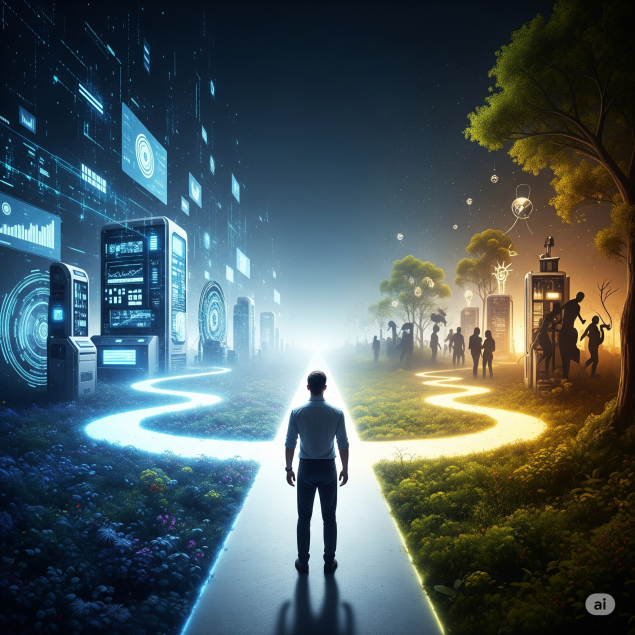
The problem is not with AI itself, but with our willingness to give it the reins. If we stop developing our cognitive and emotional abilities, if we avoid complex decisions and delegate them to machines, we risk losing not only the skills, but also the ability to think and feel independently. We can become “digital dependents” whose lives are entirely determined by algorithms.
The Future We Create: Managing Technology, Not Letting It Control Us
AI is a tool, not a destiny. Like any powerful tool, it can be used for good or bad. Our task as a society is to create an ethical framework for its development and application. This includes drafting legislation to regulate the use of AI, making algorithms transparent, tackling biases in the data on which AI is trained, and of course, a broad public debate about what we want our future to look like.
We are on the verge of great change. AI doesn’t just come into our lives; it invites us to rethink what it means to be human. There is a huge opportunity in this challenge: the opportunity to focus on our most unique and valuable qualities, on what makes us Homo Sapiens – a human being capable of creativity, empathy and continuous self-improvement. We can not voluntarily switch places with AI, but instead use it to expand our capabilities to become even more human.
Final Call for Action:
Be curious. Be adaptive. Be human. Develop unique skills that AI can’t replicate yet. Ask questions. Keep your critical thinking. And most importantly, don’t forget the power of human communication, empathy, and creativity. These qualities will be your compass in an era of great technological transformation.
- Glossary of Terms
Artificial intelligence (AI)
A broad field of computer science dedicated to building machines that can perform tasks normally requiring human intelligence, such as learning, decision-making, speech and image recognition.
Automation
Using technology to perform tasks with minimal or no human involvement. In the context of AI, this refers to the automation of both physical and cognitive processes.
Machine learning (Machine Learning)
A subdivision of AI that allows systems to learn from data, without explicit programming. Machine learning algorithms can identify patterns and make predictions.
Neural Networks (Neural Networks)
A model in machine learning inspired by the structure and functioning of the human brain. They are used for pattern recognition, natural language processing and other complex tasks.
Deep Learning (Deep Learning)
A subset of machine learning that uses multilayer neural networks (deep neural networks) to analyze large amounts of data and teach complex representations.
Emotional Intelligence (EQ)
The ability to understand, use and manage your own emotions as well as those of others. It is considered one of the key soft skills that are difficult to replicate by AI.
Critical thinking
Ability to objectively analyze information, identify biases, form informed judgments and make decisions based on logic and evidence.
Singularity
A hypothetical moment in the future when technological growth becomes uncontrollable and irreversible, leading to unpredictable changes in human civilization. Often associated with the moment when AI surpasses human intelligence.
8 rules of financial etiquette that every man should know
Margaride Corceiro: Beyond the spotlight and the catwalk – A Guide to Multifaceted Success

